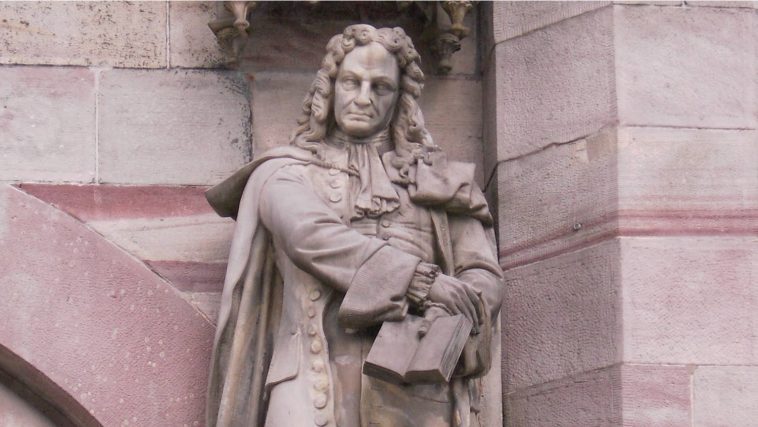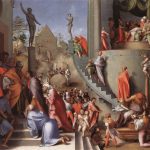I am in the midst of working on the final revisions for a book in my new elementary science series and had to take a break from the book to share two quotes of which I was recently made aware. When I finish a book, I send it to other scientists to review. This is called “peer review,” and it is an important part of the scientific process. It not only helps to find the errors that have crept into my work, but it also gives me a chance to benefit from the insights of other scientists.
Well, my peer reviewers used some quotes as a part of their review, and I found two of them to be interesting enough to share with my readers here.
The first comes from Gottfried Wilhelm Leibniz
He is one of the last natural philosophers I discuss in the third book of the series, and he is best known for pointing us to the conservation of mechanical energy. I discuss this in the book, but I also talk about his development of a binary system of logic, which led to the development of binary numbers. While we use binary numbers in computer systems today, one of Leibniz’s uses for binary numbers was to explain the Christian concept of creation out of nothing.
One of my peer reviewers pointed out something I didn’t know about Leibniz. He was fascinated with music and spent a great deal of time analyzing the mathematical nature of it. He said:1
Music is the pleasure the human soul experiences from counting without being aware that it is counting.
As someone who plays the piano, sings, and just loves music, I find that quote to be very interesting.
The other quote is more directly related to the concepts that are found in the book.
Since it was formed during the time period covered in the book, I discuss the Royal Society, which is the world’s oldest scientific academy in continuous existence. One of my peer reviewers gave me a quote about them from Dr. Ian G. Barbour, a physicist and theologian:2
The charter of the Royal Society instructed its fellows to direct their studies “to the glory of God and the benefits of the human race.” Robert Boyle (1627–1691) said that science is a religious task, “the disclosure of the admirable workmanship which God displayed in the universe.” Newton believed the universe bespeaks an all-powerful Creator. Sprat, the historian of the Royal Society, considered science a valuable aid to religion.
Sadly, I suspect that the Royal Society no longer follows its original charter, nor the ideals of the scientific luminaries who founded it.
REFERENCES
- Daniel Timmons, Catherine Johnson, and Sonya McCook, Fundamentals of Algebraic Modeling: An Introduction to Mathematical Modeling with Algebra and Statistics, Brooks/Cole Cengate Learning 2010, p. 256
- Ian G. Barbour, Religion and Science: Historical and Contemporary Issues, Harper 1997, p. 19






